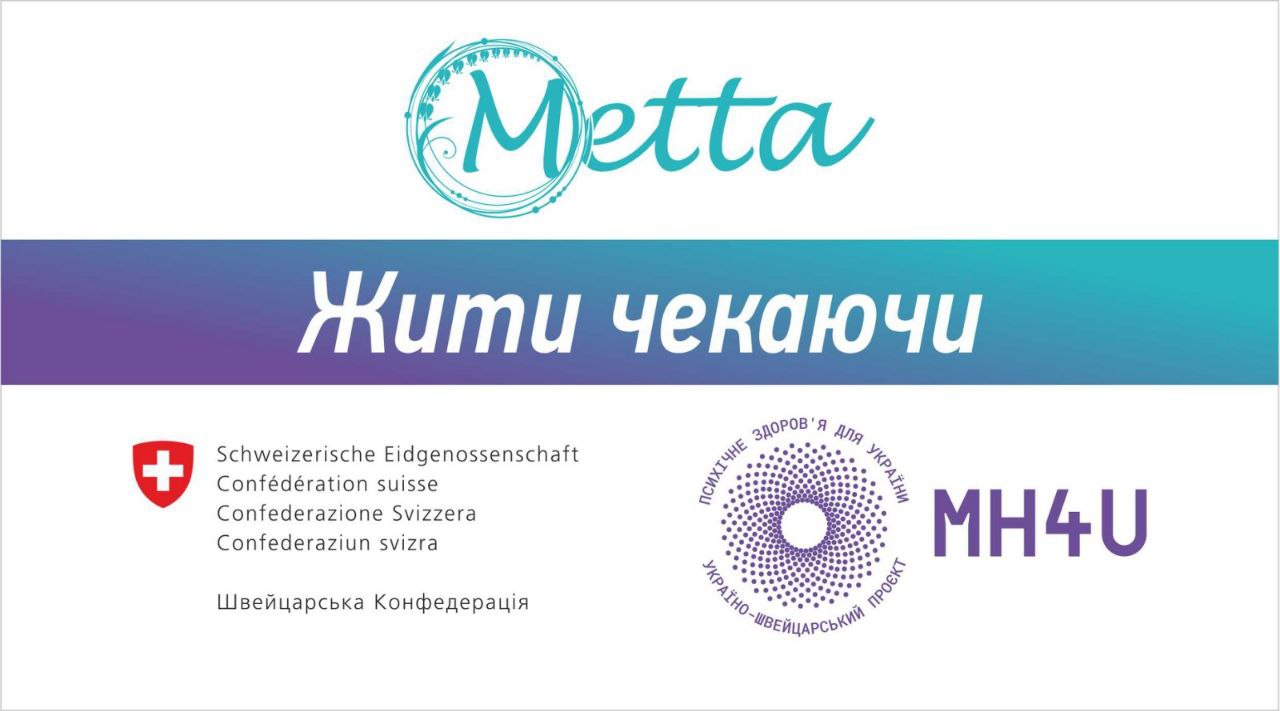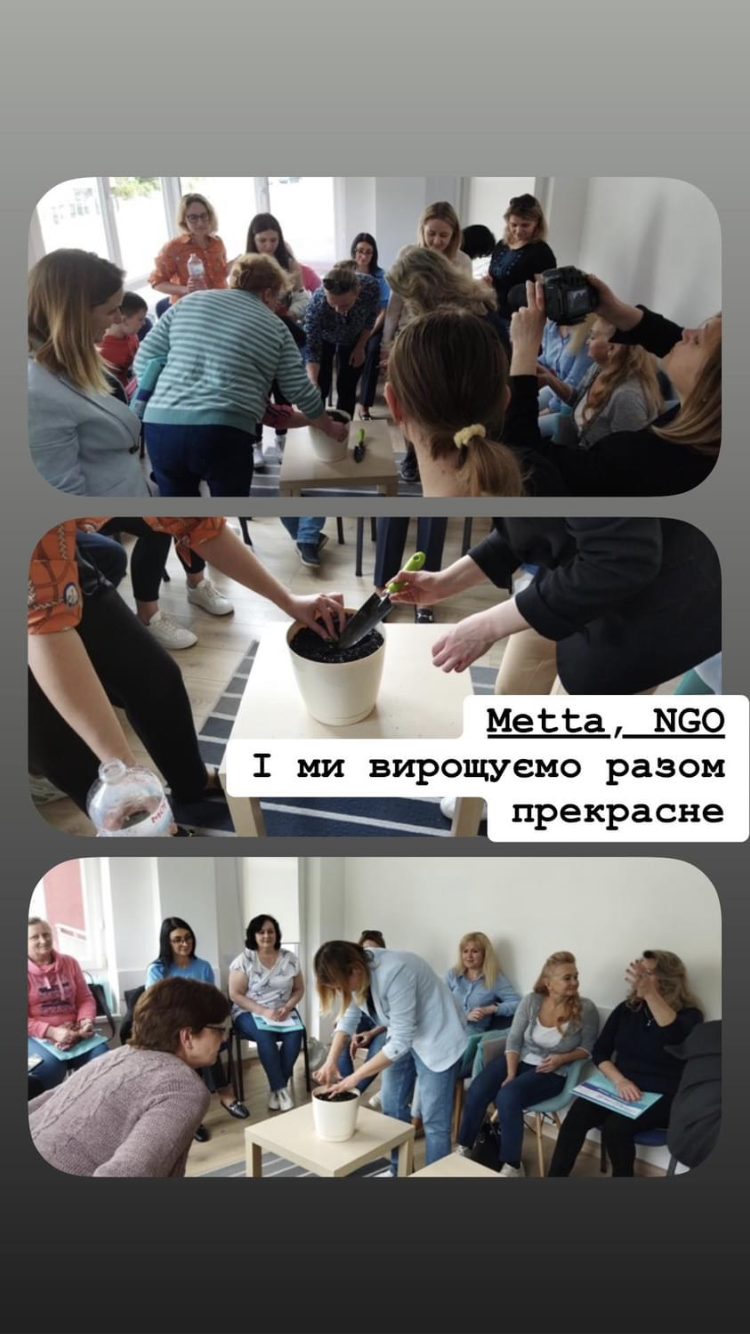Learning to live while waiting
Today we do not know the exact number of missing military and civilians. Civil society organizations do not currently have access to official statistic.

Families of missing soldiers and civilians face many new challenges that change their reality:
-
uncertainty about the fate of a loved one;
-
helplessness in the search process due to the circumstances of the war;
-
financial and psychological burden on the partners of missing persons,
-
changes in family and social roles, etc.
Overcoming these challenges becomes a daily requirement for survival and affects most areas of life of people who are waiting for and living with an uncertain loss. The search for missing relatives is accompanied by a large number of legal steps, psycho-emotional stress, social maladjustment, professional problems, and financial difficulties.
As of today, Ukraine has not developed a comprehensive system of legal support and psychosocial support for families of missing persons. The process of establishing a system of services is in a constant spontaneous process of creation. That is why it is important today to involve the sector of civic initiatives in the creation of this support system, which often have specialized knowledge and algorithms of assistance that can become instant professional support in response to the current need. In the future, the experience of supporting families of missing persons can be used as a basis for developing a broader model of focused services by integrating this experience into the state support system.

Due to the lack of focused services, communities are uniting and looking for ways to solve their difficulties. Some cope better, others need multicomponent support. In such circumstances, the best way to help is through peer-to-peer support groups, which have often proven to be the most productive way to overcome many problems in people’s lives during a crisis.
Families of missing persons need help in many areas of life. The first thing that worries families is finding information about the missing person. That is why it is important for facilitators of self-help groups to understand how to accompany people in the process of searching for information, filing a police report, and going through other legal procedures. Support for physical functioning and health: People who experience an indefinite loss often neglect their physical health, eat poorly or have bad habits, and chronic diseases can be exacerbated by traumatic stress. That is why it is so important for facilitators to understand where to refer a person to restore/rehabilitate their physical health.
Financial support: it is important to guide people in the process of obtaining financial assistance, social benefits, and restoring/acquiring a job or profession.
Social support: communication with friends, family, relatives, and the community has changed since the appearance of an indefinite loss in a person’s life. That is why it is so important to work in both directions: 1) to help the person interact with the community and 2) to help the community properly support the person experiencing an indefinite loss. Psychological support: possible in several formats – in self-help groups, individually with a psychotherapist, in the format of psychosocial activities. Spiritual support: people’s participation in traditional religious practices can be an important part of recovery. Therefore, it is important to take into account the component of spiritual life and religion if it is/was a resource for those who are experiencing an indefinite loss.
The methodology and structure of the project are based on the best international practices and existing Ukrainian experience. An indefinite loss is an unexplained loss without official confirmation of life or death, and therefore without closure of the case. It occurs when a person goes missing and there is no clarity about their absence or presence. Indefinite loss is the most stressful type of loss because there is no evidence of its final conclusion.
Theoretical model of uncertain loss. There are two types of uncertain loss. The first type is physical bereavement, which is the focus of this peer support program. Here, the person is physically absent but psychologically present, as their status as dead or alive remains unclear. With no proof of death, family members are confused and predictably disagree about the fate of their missing loved one. Some continue to hope for his or her return, while others perceive the missing person as definitely dead. Without physical proof – DNA analysis or a body for burial – the family’s loss becomes a story that has no end. The second type of indefinite loss is psychological; the person is physically present but psychologically absent due to some cognitive or emotional impairment. Both types of indefinite loss-physical and psychological-can occur for one person or one family at the same time.
Implications of uncertain loss
For professionals trained in the medical model and researchers trained in positivism, the uncertain loss approach requires a new way of thinking about increasing tolerance for unanswered questions.By recognizing the different perceptions between family and community members, as well as differential empowerment, we see the effects of uncertain loss through a psychosocial lens.
Psychologically, cognition is blocked due to uncertainty and lack of information. Decision-making is delayed, and the processes of coping and grieving are frozen. An uncertain loss complicates grief. Uncertainty hinders the search for meaning, which is so necessary to overcome the loss. It also blocks the coping and adaptation processes that are essential for human resilience.
From a social point of view, an indefinite loss destroys the structure and functions of the family.When a person disappears, family members become confused about who is in the family and who is not, and who does what to make the family function in everyday life. Who takes care of the children after the father has disappeared?Who supports the family now that the father’s fate is unknown?Am I still married?Am I a widow or widower now that my spouse is missing? Daily tasks are left undone and roles are confused.Friends and children are overlooked, and traditional family rituals and celebrations are canceled, even if they could be resources.As indefinite loss freezes the processes necessary for individual and family coping, adaptation and change, families become fragile, unable to withstand the long-term stress caused by indefinite loss.
Group support for the families of missing persons (on a peer-to-peer basis) is the most effective way to comfort and stabilize people living with an indefinite loss.
In this project, support for families of missing persons is provided on a peer-to-peer basis: active family members of missing persons from Drohobych, Mykolaiv and Chervonohrad communities are involved in the project as team members, trained in the principles and algorithms of support and running self-help groups.